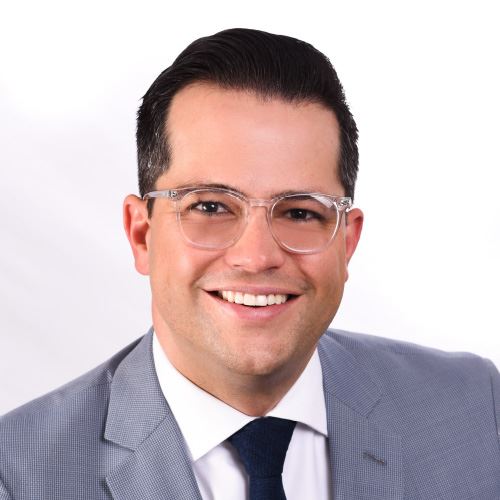In the state of California, the probate process is designed to ensure the orderly distribution of assets and the execution of a deceased person’s will, as well as address trust and will disputes. There are situations where disputes can arise regarding the validity or fairness of a trust and/or will, and when negotiation or mediation fails to resolve these issues, probate litigation becomes necessary. This article will explore the circumstances under which challenging a trust and/or a will in California may be warranted and provide insights into the probate litigation process.
The Probate Litigation Process When Challenging the Validity of a Trust and/or Will in California

Grounds for Challenging a Trust and/or Will:
Challenging a trust and/or will in California requires valid grounds supported by admissible evidence. Generally, the grounds for challenging the validity of a trust and/or will are very similar in California and include some of the following:
Lack of testamentary capacity:
If the testator (the person making the will) or the settlor/trustor (the person making the trust) did not have the requisite mental capacity needed under the California Probate Code.
If the challenged document is a will, the issue becomes whether or not the testator had the mental capacity to do any of the following: (1) understand the nature of the testamentary act; (2) understand and recollect the nature and situation of the individual’s property; and (3) remember and understand the individual’s relations to living descendants, spouse or registered domestic partner, and parents, and those whose interests are affected by the will.
If the challenged document is a trust, a different standard generally applies to determine if the settlor/trustor had capacity to create an inter vivos trust. The issue becomes whether or not the settlor/trustor has the ability to communicate the decision verbally, or by any other means, and to understand and appreciate, to the extent relevant, all of the following: (1) the rights, duties, and responsibilities created by, or affected by, the decision; (2) the probable consequences for the decision maker and, when appropriate, the persons affected by the decision; and (3) the significant risks, benefits, and reasonable alternatives involved in the decision.
In either situation, this can include where the testator/settlor/trustor had cognitive impairments, mental illness, or was under the influence of medication that affected their decision-making abilities.
Undue influence:
When someone exerted pressure or influence over the testator/settlor/trustor to manipulate their decisions and coerce them into making provisions in the trust or will that they would not have otherwise made.
Fraud or forgery:
If there is evidence to suggest that the trust or will was procured through fraudulent means or that someone forged the testator’s/settlor’s/trustor’s signature or made unauthorized alterations to the document.
Improper execution:
When the trust or will does not meet the legal requirements for its execution, such as not being properly signed, witnessed, or dated according to California law.
Initiating Probate Litigation:
To challenge a trust or will in California, an interested party must file a formal legal petition with the appropriate court. This initiates the probate litigation process. The court will review the allegations and determine whether there is sufficient cause to proceed.
- Consult with an attorney: Seek the guidance of an experienced probate litigation attorney who focuses in trust or will contests. They will assess the merits of your case and guide you through the legal process.
- File a petition: Your attorney will help you prepare and file a petition with the appropriate California probate court. The petition should outline the grounds for challenging the trust or will and the specific relief you are seeking, such as invalidating the trust or will or modifying its provisions.
- Serve notice: Once the petition is filed, you must provide notice to all interested parties, including the executor or personal representative named in the trust or will, beneficiaries, and any other parties with a legal interest in the estate.
- Gather evidence: Collect all relevant evidence supporting your claims, such as medical records, witness testimonies, financial documents, or any other documentation that supports your allegations of lack of capacity, undue influence, fraud, or improper execution.
Presenting Evidence:
During probate litigation, both sides present evidence to support their respective positions. This may involve obtaining witness statements, medical records, financial documents, and other relevant evidence. Expert witnesses, such as forensic accountants or psychologists, may be called upon to provide specialized insights.
Mediation and Settlement:
In some cases, the court may encourage or mandate mediation to facilitate a resolution without going to trial. Mediation allows parties to negotiate and find a mutually acceptable outcome under the guidance of a neutral mediator.
Trial and Judgment:
If a settlement cannot be reached, the case will proceed to trial. Each party presents their arguments, evidence, and witnesses before the court. The judge or jury will evaluate the evidence and make a final determination regarding the validity or invalidity of the trust or will.
Appeals and Final Resolution:
After a judgment is rendered, either party may choose to appeal the decision if they believe legal errors were made. The appeals process involves presenting arguments to a higher court to seek a reversal or modification of the initial judgment. Once all legal avenues have been exhausted, a final resolution is reached.
Is There a Deadline for Challenging a Trust or Will in California?

Yes, there is a deadline for challenging a trust or will in California. With respect to a will, an interested person can contest a will by filing a petition immediately after the death to object to the executor’s petition to the probate the will. If the will has already been probated, it is possible to contest the validity of the will within 120 days of the hearing date. With respect to a trust, an interested person can contest a trust within 120 days of receiving statutory notice under the California probate code. However, there are some exceptions and circumstances that can extend or shorten the time frame for filing a trust or will contest.
In California, there are certain exceptions and circumstances that can extend or shorten the time frame for filing a trust or will contest beyond the standard 120-day deadline. Here are a few examples:
- Lack of Notice: If you were not provided with proper notice of the probate proceedings, the deadline to challenge the trust or will may be extended. With respect to a will, the clock typically starts running from the date you receive formal notice of the probate. Additionally, with respect to a trust, the clock typically starts running from the date you receive formal notice under section 16061.7 of the California probate code.
- Minority or Incapacity: If you were a minor or lacked the mental capacity to challenge the trust or will at the time it was admitted to probate or notice under section 16061.7 of the California probate code was provided, the deadline may be extended. The clock may start running from the date you attain legal age or regain capacity.
- Fraud, Duress, or Undue Influence: If you have evidence of fraud, duress, or undue influence in the creation or execution of the trust or will, you may have a basis to challenge it even after the standard deadline has passed.
- Discovery of New Evidence: If new evidence comes to light after the standard deadline, such as the discovery of a later trust or will or evidence of forgery, the court may allow a late challenge to the trust or will.
- Extension by the Court: In some exceptional circumstances, the court has the discretion to extend the deadline for filing a trust or will contest if it deems it just and equitable to do so.
How Long Will Probate Litigation Last for Challenging a Trust or Will?
The duration of the probate litigation process for challenging a trust or will in California can vary. The process duration depends on several factors, including the complexity of the case, the number of parties involved, and any disputes or complications that arise during the proceedings. While it is challenging to provide an exact timeline, probate litigation typically takes several months to a few years to reach a resolution.
Why OC Trial Group is Your Best Choice in a Probate Litigation Case

When it comes to probate litigation in California, the OC Trial Group stands out as a premier choice for representing you in a dispute over the validity of a trust or will. Our probate litigation attorneys are well-equipped with the knowledge, experience, and dedication necessary to navigate the complexities of these cases and protect your interests. Here are a few reasons why OC Trial Group is your best choice for probate litigation:
- Expertise in Probate Law: Our attorneys concentrate and are well known in probate law and have a deep understanding of the legal principles and procedures involved in challenging a trust or will. They stay updated on the latest developments in probate law to provide you with effective representation.
- Extensive Litigation Experience: Our probate litigation attorneys have extensive experience in handling complex legal disputes. They have a track record of success in representing clients in probate litigation cases, including trust or will contests. They are skilled in building strong legal arguments, presenting evidence, and advocating for your rights in court.
- Personalized and Client-Centered Approach: At OC Trial Group, we prioritize understanding your unique circumstances and tailoring our legal strategies to align with your goals and objectives. Because each probate litigation case is unique, we provide personalized attention and maintain open communication with our clients throughout the entire probate litigation process. Your needs and concerns are our top priority, and we work tirelessly to achieve the best possible outcome for your case.
By choosing OC Trial Group for your probate litigation needs, you can have confidence in our expertise, experience, and commitment to providing exceptional legal representation. We understand the emotional and financial stakes involved in challenging a trust or will, and we are dedicated to guiding you through the process with compassion, integrity, and tenacity.
Conclusion:
Challenging a trust or will in California through probate litigation can be a challenging and emotionally charged process. It requires a deep understanding of the legal grounds, comprehensive evidence gathering, and skilled advocacy. Consulting with an experienced probate litigation attorney is crucial to navigate this process effectively. If you find yourself in a situation where you believe challenging a trust or will is necessary, don’t hesitate to reach out to us for free legal advice at (949) 270-3424 or through our contact page. Take the first step in this process by relying on the highly reputable probate litigation attorneys in California.
The post Challenging a Will in California: When Probate Litigation Becomes Necessary appeared first on OC Trial Group.
About the Author
Blaine M. Brown is a co-founder of the OC Trial Group and acts as one of their primary trial attorneys. Mr. Brown is a highly awarded and reviewed trial attorney.

